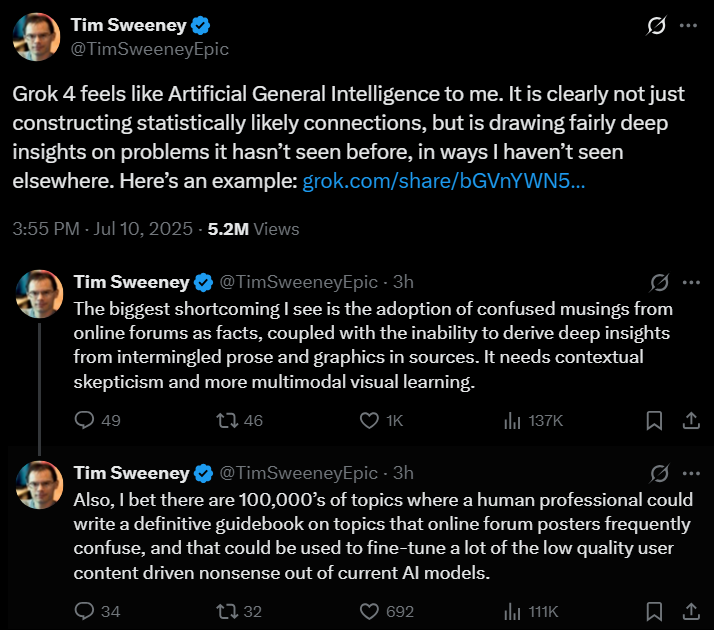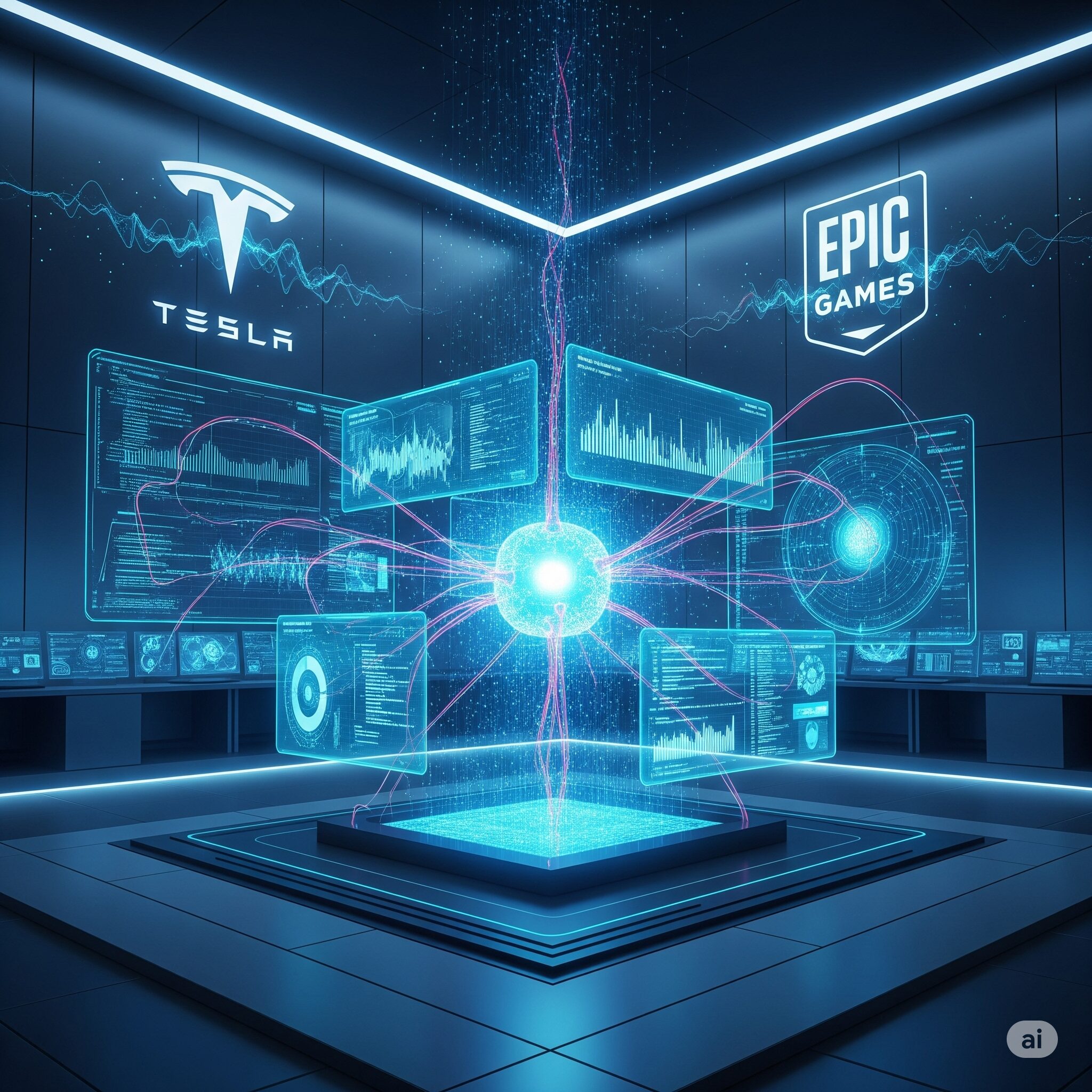Cary, NC – The tech world is buzzing following a series of candid tweets from Epic Games CEO Tim Sweeney, who today declared Grok 4 “feels like Artificial General Intelligence”¹. His bold claim immediately drew a notable co-sign from X owner Elon Musk, who also today echoed Sweeney’s sentiment, further fueling discussions about the cutting edge of AI.

Musk, responding to Sweeney, tweeted, “That was how I felt when asking Grok 4 questions about materials science that are not in any books or on the Internet”². This corroborates Sweeney’s assertion that Grok 4 transcends mere statistical pattern recognition, instead “drawing fairly deep insights on problems it hasn’t seen elsewhere”¹. Both tech leaders point to Grok’s ability to generate novel information, not just retrieve or synthesize existing data.

To back his extraordinary claim, Sweeney offered a deep dive into Grok 4’s analysis of the highly complex “Verse Calculus” paper, a foundational document in functional logic programming. Grok 4’s response, generated in what appears to be a blistering 23 seconds, delivered a meticulously structured overview of the paper’s abstract, introduction, core concepts, syntax, and semantics³. It even detailed the main contributions and drew comparisons to other programming paradigms. The AI then tackled a nuanced follow-up question regarding a theoretical variant of the Verse Calculus and its intricate relationship to set theory, completing this advanced query in just 73 seconds³. Such a sophisticated grasp and synthesis of highly technical academic material clearly served as the catalyst for Sweeney’s AGI pronouncement.
However, hot on the heels of his praise, Sweeney quickly shifted gears, offering a more sobering assessment of AI’s current state. In subsequent tweets, he pinpointed what he considers the “biggest shortcoming” of models like Grok 4, “the adoption of confused musings from online forums as facts, coupled with the inability to derive deep insights from intermingled prose and graphics in sources”¹. This highlights a critical, often overlooked, Achilles’ heel in the race for true intelligence, the quality and contextual understanding of training data.
Sweeney’s call for “contextual skepticism” underscores a fundamental limitation. Current AIs, he suggests, are still prone to absorbing unverified information from the digital ether without a human-like filter for credibility. Furthermore, their struggle with “multimodal visual learning,” the ability to seamlessly integrate insights from both text and graphics, limits their capacity to fully comprehend complex documents, particularly in scientific and technical fields where diagrams and visual data are paramount.
To combat this “low quality user content driven nonsense,” Sweeney floated a practical, if ambitious, solution. He posited, “I bet there are 100,000’s of topics where a human professional could write a definitive guidebook… that could be used to fine-tune a lot of the low quality user content driven nonsense out of current AI models”¹. This vision suggests a future where human expertise isn’t supplanted but rather leveraged to create gold-standard datasets, refining AI’s understanding and steering it away from the murky waters of online misinformation.
Tim Sweeney’s recent remarks, now amplified by Elon Musk’s corroborating experience, offer a fascinating dual perspective on the cutting edge of AI. While undeniably impressed by Grok 4’s seemingly AGI-level analytical capabilities, Sweeney simultaneously rings the alarm bell on the pervasive challenge of data quality and the need for more sophisticated multimodal understanding. His insights underscore that while AI’s raw processing power continues to astound, the journey to truly robust, reliable artificial general intelligence will inevitably hinge on how effectively we can filter, curate, and critically integrate the vast, messy ocean of human knowledge.
Sources:
¹ Tim Sweeney (@TimSweeneyEpic). (July 10, 2025). Tweets regarding Grok 4 feeling like AGI, its deep insights, AI’s shortcomings with online forum data and multimodal learning, and the suggestion for human-written guidebooks for fine-tuning.
² Elon Musk (@elonmusk). (July 10, 2025). Tweet responding to Sweeney about Grok 4’s capabilities in materials science.
³ Grok 4’s analysis of the “Verse Calculus” paper and subsequent follow-up question. (As shown here, retrieved July 10, 2025).








Leave a Reply